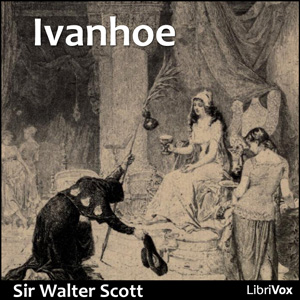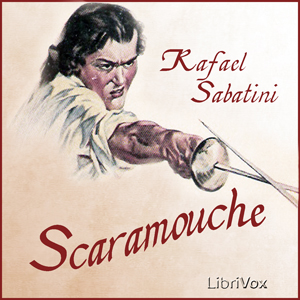- The last token, painting, frontispiece
- Greece Part I: Stories from Greek literature: Historical note
- The story of Oedipus, by Sophocles, retold by Rev. G. W. Cox
- The sacrifice of Iphigenia, by Euripides
- The deification of Homer, painting p. 22
- Princess Nausicaa and the shipwrecked sailor, by Homer
- The meeting between Odysseus and his father, by Homer
- Greece Part II: Life in Early Greece: Historical note
- How the Spartan boys were trained (about the ninth century B.C.), by Plutarch
- Solon, who made laws for the Athenians (639-559 B.C.), by Eva March Tappan
- At the Olympian Games (after the eighth century B.C.), by Charles Diehl
- The chariot race (after the eighth century B.C.), by Sophocles
- Greek girls playing ball, painting p. 75
- Ode on a Grecian urn, by John Keats
- Greece Part III: War with Persia: Historical note
- The battle of Marathon (490 B.C.), by E. S. Creasy
- The Lemnian: a story of Thermopylae (480 B.C.), by John Buchan
- How Themistocles brought about the battle of Salamis (480 B.C.) by Plutarch
- Greece Part IV: The Golden Age of Athens: Historical note
- Pericles and his age (465-429 B.C.) by Eva March Tappan
- A religious procession in honor of Apollo, painting p. 128
- In the temple of Aphrodite, by Ernst Eckstein
- The bout between the poets (405 B.C.) by Aristophanes
- The siege of Plataea (427 B.C.) by Thucydides
- When the ten thousand came to sea (400 B.C.) by Xenophon
- The death of Socrates (399 B.C.) by Plato
- Greece Part V: Macedonian supremacy: Historical note
- Danger from Macedonia (348 B.C.) by Demosthenes
- Alexander the Great (356-323 B.C.) by Plutarch
- In the studio of Apelles (4th century B.C.) by Henry Greenough
- The death of Alexander the Great, painting p. 204
- Greece Part VI: From the Roman conquest to the nineteenth century: Historical note
- The sale of the philosophers (second century A.D.) by Lucian
- Marco Bozzaris (1823), by Fitz-Greene Halleck
- The Isles of Greece, by Lord Byron
- Rome Part I: History and legend: Historical note
- Funeral games in honor of Anchises, by Virgil, from translation of Christopher Pearse Cranch
- The arrival of Aeneas in Italy, by Virgil, from translation of Christopher Pearse Cranch
- How Rome was founded (753 B.C. ?), by Jacob Abbott
- The contest between the Horatii and the Curiatii (about 650 B.C. ?), by Livy
- Brutus condemning his sons to death, painting p. 268
- Horatius (508 B.C. ?), by Thomas Babington Macaulay
- How the Plebeians won their rights, by Eva March Tappan
- Rome Part II: Stories of the Italian wars: Historical note
- When Coriolanus spared Rome (490 B.C. ?), by Thomas Arnold
- How Cincinnatus saved the consul (455 B.C.), by Thomas Arnold
- The fall of Veii (396 B.C.) by Thomas Arnold
- The geese that saved the Capitol (364 B.C.) by Thomas Arnold
- Rome Part III: Rome becomes mistress of the world: Historical note
- The Romans of the Early Republic and their ways, by Eva March Tappan
- How Hannibal made his way to Italy (218 B.C.), by Livy
- Hannibal crossing the Rhone, painting p. 336
- How Archimedes defended Syracuse (212 B.C.), by Livy
- Marius to the Roman people (106 B.C.), by Sallust
- Spartacus to the gladiators (73 B.C.), by Elijah Kellogg
- On the death of Lesbia's sparrow, by Catullus
- Rome Part IV: Julius Caesar: Historical note
- Cicero denouncing Catiline in the Roman senate, painting p. 368
- When Caesar crossed the Rubicon (49 B.C.), by Plutarch
- Caesar at the height of his power (48-44 B.C.), by Plutarch
- The assassination of Caesar (44 B.C.) by James Anthony Froude
- At the funeral of Caesar (44 B.C.) by William Shakespeare
- Rome Part V: The Augustan Age: Historical note
- Augustus, the shrewd young emperor (emperor 31 B.C.-14 A.D.), by Eva March Tappan
- The letter of a Roman university student (44 B.C.), by Cicero the Younger
- A Roman bore, by Horace
- Why Ovid was banished (10 A.D.), by Maurice Baring
- Rome Part VI: Rome under the Caesars: Historical note
- The fall of Sejanus (27 A.D.) by S. Baring-Gould
- In the time of Nero, painting p. 430
- The emperor Nero on the stage (67 A.D.) by S. Baring-Gould
- The destruction of Pompeii (79 A.D.) by Sir Edward Bulwer Lytton
- A visit to Pompeii (nineteenth century) by Charles Dickens
- How to treat the Christians (112 A.D.) a letter of Pliny the Younger to the emperor Trajan, and the emperor's reply
- Rome Part VII: How the Romans amused themselves: Historical note
- ''Pollice verso'' (''Thumbs down''), painting p. 460
- The dying gladiator, by Lord Byron
- The Christian martyrs in the arena (64 A.D.) by Henryk Sienkiewicz
- A Roman banquet, by W. A. Becker, adapted from Petronius
- The country house of Pliny the Younger (end of the first century A.D.), described by himself
- ''Ave Caesar'' (''Hail, Caesar''), painting p. 490
- The winning of the first missus (about 391 A.D.) by Georg Ebers
- Rome Part VIII: The grandeur that was Rome: Historical note
- Marcus Aurelius, the philosopher emperor (121-180 A.D.), by Eva March Tappan
- Queen Zenobia and the Roman ambassadors (273 A.D.), by William Ware
- The Roman roads, by J. R. S. Sterrett
- Constantine the Great (born about 270 A.D. Emperor, 306-337), by Eva March Tappan
- Rome Part IX: The coming of the Barbarians: Historical note
- Rome pays ransom to Alaric the Goth (409 A.D.), by Wilkie Collins
- Huns pillaging a French villa, painting p. 540
- How the empire was saved from the Huns (451 A.D.), by Sir Edward Shepherd Creasy
- Peace with the Goths or war ? (535 A.D.), by Felix Dahn
- Justinian in council, painting p. 548
- Belisarius (505-564 A.D.), by Henry Wadsworth Longfellow
This is the fourth volume of the 15-volume series of The World’s Story: a history of the World in story, song and art, edited by Eva March Tappan. Each book is a compilation of selections from prose literature, poetry and pictures and offers a comprehensive presentation of the world's history, art and culture, from the early times till the beginning of the 20th century. Topics in Part IV include Greek mythology, the classical Greek period and the Rise and Fall of the Roman Empire. - Summary by Sonia
Cast list for The sacrifice of Iphigenia:
Iphigenia: Devorah Allen / Chorus: alanmapstone / Messenger: Foon / Clytemnestra: Monika M.C. / Agamemnon: Tomas Peter / Narrator: Sonia
Cast list for The bout between the poets:
Dionysus: alanmapstone / Aeschylus: TJ Burns / Chorus: Monika M.C. / Euripides: Tomas Peter / Voice: Foon / Pluto: Nemo / Narrator: Sonia
Cast list for The sale of the philosophers:
Jupiter: alanmapstone / Mercury: Tomas Peter / First Customer: TJ Burns / Pythagoras: Foon / Second Customer: Sandra Schmit / Diogenes: Son of the Exiles / Third Customer: Angelique G. Campbell / Fourth Customer: Monika M.C. / Democritus: Jim Locke / Heraclitus: Devorah Allen / Socrates: Roger Melin / Fifth Customer: April6090 / Sixth Customer: Craig Franklin / Seventh Customer: ToddHW / Chrysippus: Larry Wilson / Eighth Customer: SaraHale / Ninth Customer: Eva Davis / Pyrrho: Nemo/ Narrator: Sonia
Cast list for At the funeral of Caesar:
First Citizen: alanmapstone / Second Citizen: Monika M.C. / Third Citizen: Foon / Fourth Citizen: TJ Burns / Brutus: Nemo / Antony: Tomas Peter / Narrator: Sonia
Cast list for The sacrifice of Iphigenia:
Iphigenia: Devorah Allen / Chorus: alanmapstone / Messenger: Foon / Clytemnestra: Monika M.C. / Agamemnon: Tomas Peter / Narrator: Sonia
Cast list for The bout between the poets:
Dionysus: alanmapstone / Aeschylus: TJ Burns / Chorus: Monika M.C. / Euripides: Tomas Peter / Voice: Foon / Pluto: Nemo / Narrator: Sonia
Cast list for The sale of the philosophers:
Jupiter: alanmapstone / Mercury: Tomas Peter / First Customer: TJ Burns / Pythagoras: Foon / Second Customer: Sandra Schmit / Diogenes: Son of the Exiles / Third Customer: Angelique G. Campbell / Fourth Customer: Monika M.C. / Democritus: Jim Locke / Heraclitus: Devorah Allen / Socrates: Roger Melin / Fifth Customer: April6090 / Sixth Customer: Craig Franklin / Seventh Customer: ToddHW / Chrysippus: Larry Wilson / Eighth Customer: SaraHale / Ninth Customer: Eva Davis / Pyrrho: Nemo/ Narrator: Sonia
Cast list for At the funeral of Caesar:
First Citizen: alanmapstone / Second Citizen: Monika M.C. / Third Citizen: Foon / Fourth Citizen: TJ Burns / Brutus: Nemo / Antony: Tomas Peter / Narrator: Sonia
There are no reviews for this eBook.
There are no comments for this eBook.
You must log in to post a comment.
Log in











